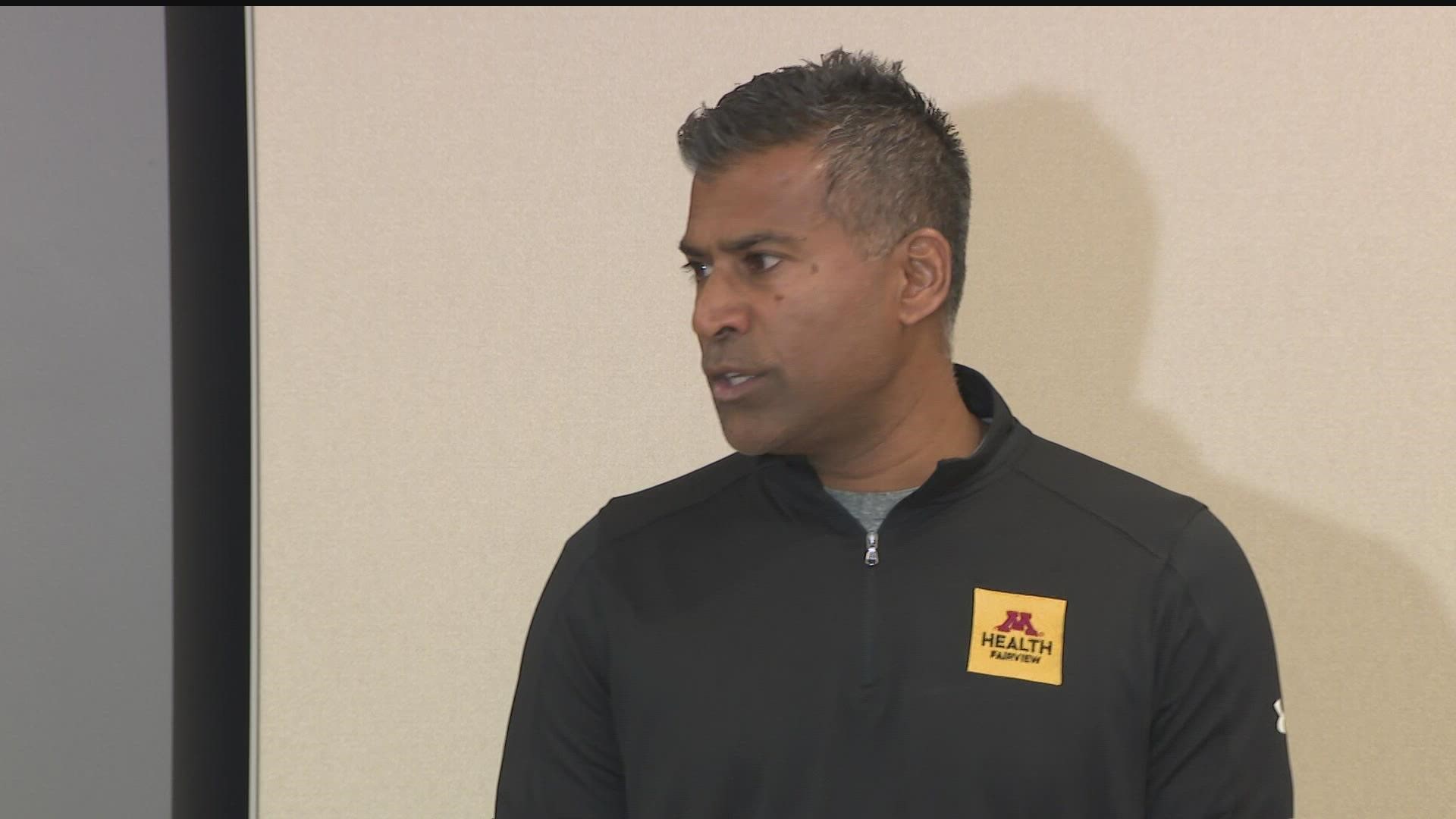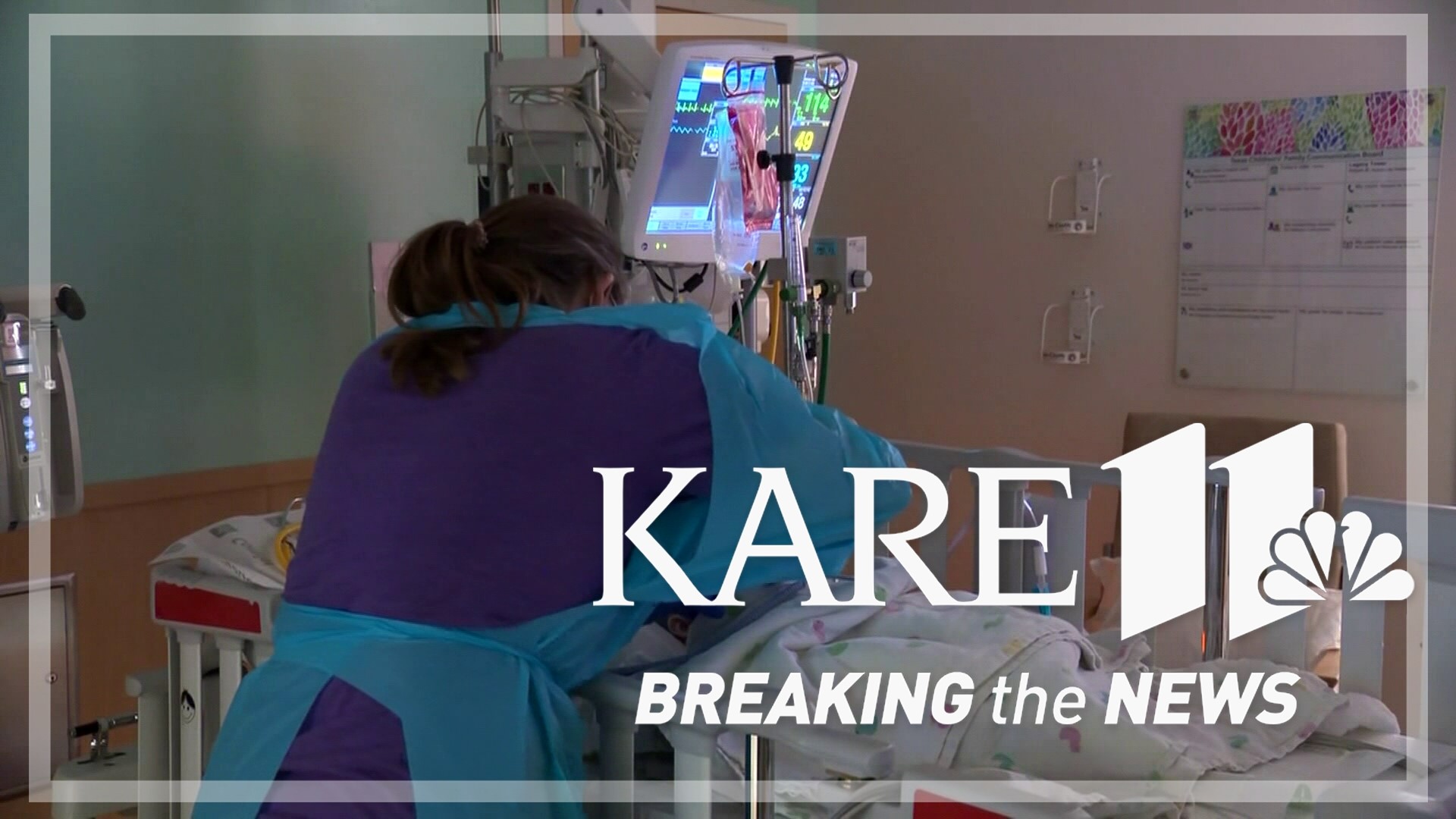MINNESOTA, USA — The Minnesota Medical Association and a half-dozen healthcare systems spoke Monday on the growing RSV numbers in children statewide.
The groups held a news conference to raise awareness of the outbreak across Minnesota ahead of the holidays, and what parents can do to help care for their kids.
Allina Health, CentraCare, Children's Minnesota, HealthPartners, Hennepin Healthcare, MHealth Fairview, and the Minnesota Medical Association also addressed other widespread illnesses affecting children across Minnesota. This includes infections and other respiratory illnesses such as influenza A and B.
"In my 25 years of being a pediatrician, I've never seen anything like this," said pediatric infectious disease specialist Stacene Maroushek, MD with Hennepin Healthcare, in a statement. "I have seen families who just aren't getting a break. They have one viral illness after another. And now there's the secondary effect of ear infections and pneumonia that are prompting amoxicillin shortages."
The rising number of children falling ill is also reportedly causing crowding in "urgent cares, clinics, and emergency departments, increased hospitalizations, and medication shortages," according to a press release. Schools across Minnesota are also experiencing increased student and staff absences due to the spread of illness.
In the press conference, healthcare specialists urged the community to only come into the hospital if their child has a persisting fever, trouble breathing, pale/blue skin, is struggling to eat or drink, or other severe symptoms to reduce crowding in the emergency rooms. They said symptoms such as runny noses and mild fevers can be treated at home with over-the-counter medicine and home remedies, and encouraged parents to reach out to their pediatricians for guidance as well.
“Right now we’re dealing with overwhelming scenarios with RSV and influenza, and we are trying our hardest to take care of everyone we can," said Dr. Abe Jacob of MHealth Fairview. "Consider options like virtual care, drive-by testing and save the emergency room for true emergencies.”
The groups also urged the community to do their part in keeping themselves and their families healthy to prevent the spread of illness, including getting flu shots, hand washing and practicing self-care.
“We can prevent respiratory illnesses, and we can prevent burnout of healthcare workers, but we need your help. We want you to stay healthy,” said Dr. Will Nicholson of the Minnesota Medical Association. “Together we can prevent a lot of this illness by working as a team and doing things that we all know is effective.”
Watch Monday's news conference with doctors from across Minnesota:
In a new release from the Minnesota Hospital Association, doctors suggested the following precautions:
- Stay home if you or your family are sick.
- Wash hands often.
- Cover coughs and sneezes with a tissue or shirt sleeve, not your hands.
- Clean frequently touched surfaces, such as doorknobs and mobile devices.
- Avoid close contact with sick people.
- Mask when appropriate.
- Stay up to date on flu shots and COVID-19 boosters.
- Flu shots are recommended every year for adults and kids 6 months and older.
- COVID-19 vaccine boosters are recommended for adults and children 5 years and older if it has been at least two months since their last vaccine dose. People who recently had a COVID-19 infection may consider delaying their booster until three months after the first positive test or when symptoms started.
- Consider urgent care, a primary health provider, or telehealth options for non-emergency care.
- Have a primary care provider for your entire family and stay connected and up to date with preventative care so that the primary care team can partner with you on all health care issues.
Watch more local news:
Watch the latest local news from the Twin Cities in our YouTube playlist:


